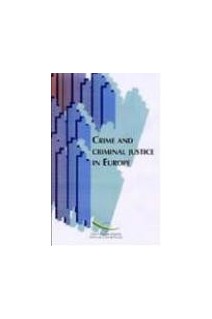Are punishments meted out by courts fair? Are courts consistent throughout Europe in their treatment of criminals? Is society more crime-ridden than ever before? Are some crimes being overlooked in the face of greater social problems?
Fairness and equality in criminal justice policy and procedures are a growing concern for specialist legal experts, for the judiciary, the police and the general public, as victims, as voters and as members of society.
Crime policy in Europe brings together fourteen crime policy specialists from across Europe who present the various new aspects of crime policy development, from the outlining of existing and recent trends of crime, to the importance of victim concerns, crime prevention and policing, through the role of the prosecution and sentencing, as well as different kinds of sanctions ranging from imprisonment to community service and other measures.
The prosecution, imprisonment and rehabilitation of criminals has changed dramatically in Europe over the past ten years due to greater freedom of movement within Europe, bringing to light inconsistent judicial systems with the added challenges of the rise of particular kinds of cross-border crime, such as drug trafficking. These recent new pressures on crime policy are forcing many of its philosophies and procedures to be re-evaluated.
This book will explain many of the new decisions being taken and options that are available to the courts. Its broad European scope will be of particular interest to students and practitioners of crime policy, to legislators, politicians, members of the law and all organisations and associations interested in the treatment and welfare of both criminals and their victims. It will answer many of the questions concerning crime policy and procedure, which the general reader is likely to ask on a daily basis.
Consult the conventions' compendium " International co-operation in penal matters - Conventions (1997)"
http://book.coe.int/GB/CAT/LIV/HTM/l435.htm




